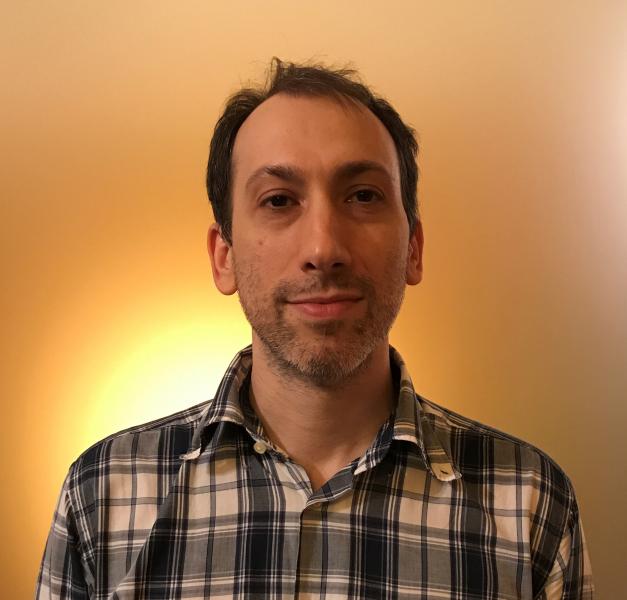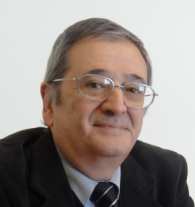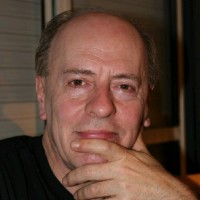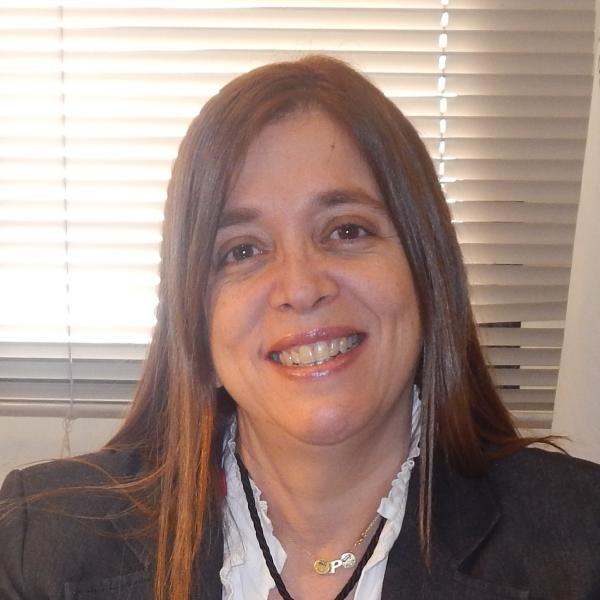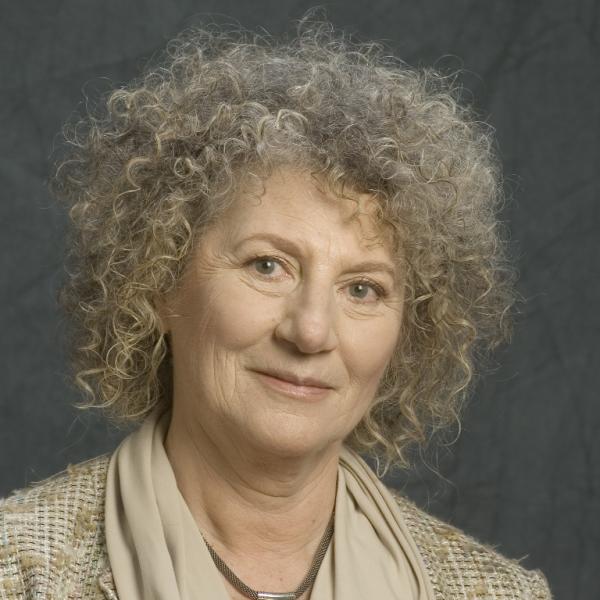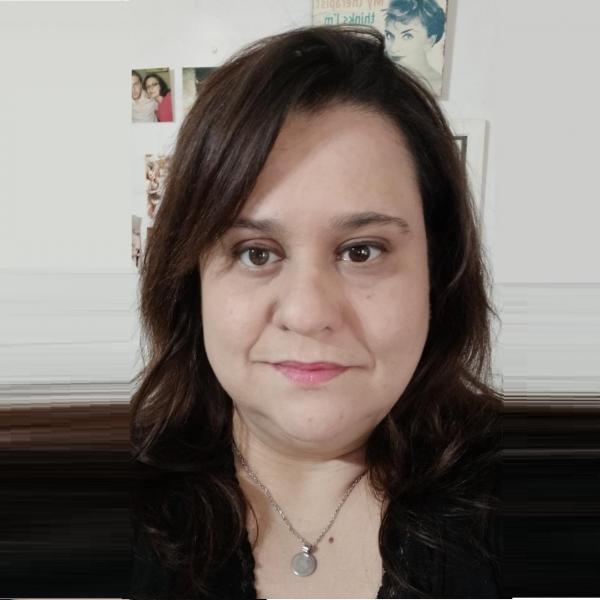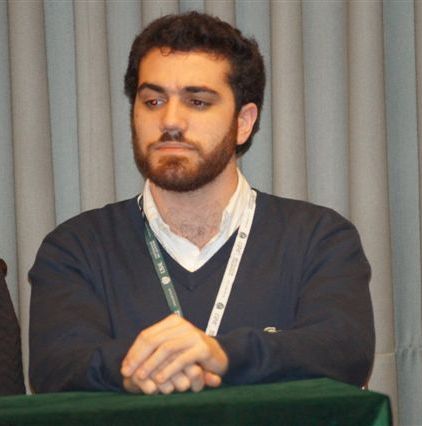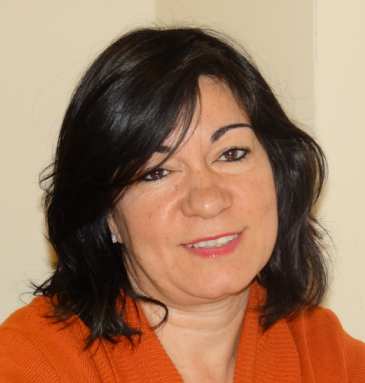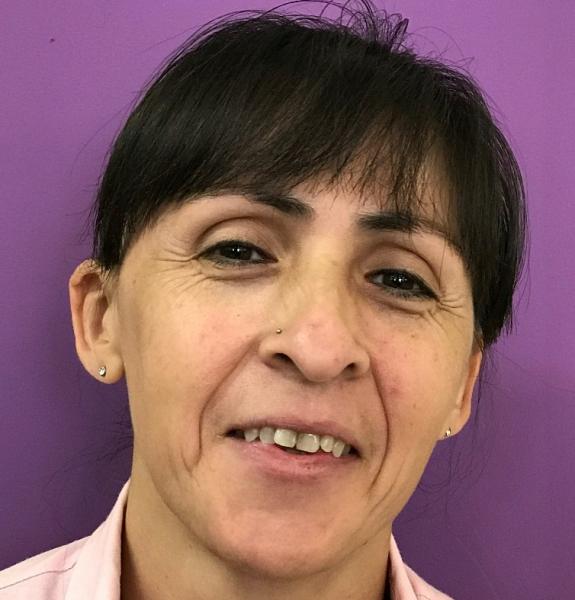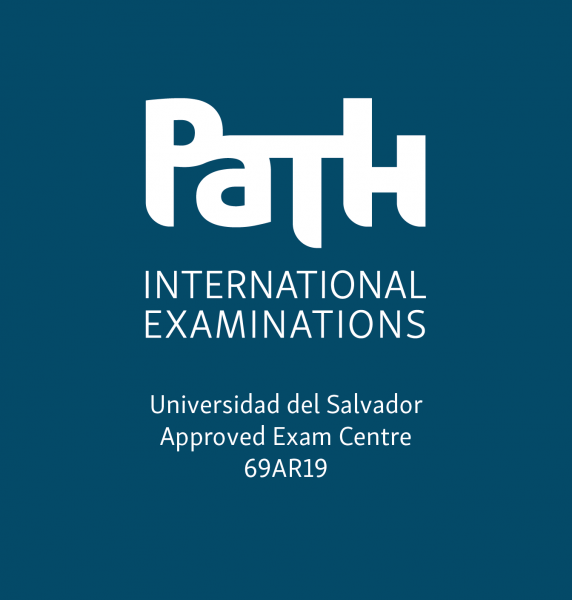 |
 Paul Tench Paul Tench
BA, Dip.Ed., Dip.Ling.Sci, PhD
Retired Senior Lecturer; former Head of the Applied English Language Studies section of the School of English, Communication and Philosophy (1992-4). Now, the Centre for Language and Communication Research, Cardiff University.
He was first appointed to the staff in 1967 in what was then the Department of English, UWIST, with teaching responsibilities in the theory and practice of language teaching, applied linguistics, phonology and practical phonetics. During the 1970s, he also taught English as a Second Language for University College Cardiff, phonetics and linguistics in the School of Speech Therapy at Llandaff Technical College (now part of the University of South Wales), and phonetics at the Seminar für Sprachmethodik, the German branch of the Summer Institute of Linguistics (SIL).
In 1979, with a two-year leave of absence, he took up the post of Senior Lecturer in the Department of Modern European Languages at the University of Ilorin, Nigeria, with teaching responsibilities in English speech, applied linguistics, and the University-wide Use of English course delivered to all 1000 first year students. He also helped to design the University’s first MA programme in linguistics.
|
|
Keynote conference: Intonation as the Sound of Discourse.
Q&A session.
|
 |
 Marina Laura Alvarez Marina Laura Alvarez
Marina Laura Alvarez is a Conference Interpreter graduated from Universidad del
Salvador with a participation in the Exchange Programs in the University of the Pacific in San Francisco, California, USA. She also holds a BA in English Language and in Teaching at Higher Education. She is a doctoral student in Letters at Universidad Católica Argentina, holds a research scholarship and is currently writing her thesis on the contrastive analysis of non-finite verbs in English and Spanish. As a professor and a researcher, she has devoted herself to the areas of Grammar and Linguistics and is currently teaching English Grammar I and II at the School of Modern Languages, Universidad del Salvador and Linguistic Structures III and IV as well as Contrastive Grammar at the Language Department of the Faculty of Philosophy and Letters, Universidad Católica Argentina.
|
|
"Contrastive analysis of actualized forms of nominal infinitives in Spanish and their alternating forms in English within the scope of a translation”
This paper addresses a problematic issue concerning actualized forms of the nominal infinitive in Spanish {determiner + infinitive} which will be studied in contrast with its alternating forms of nominalized non-finite verbs in English. The aim of this contrastive analysis is, firstly, to bring light to the cases in which the nominalized infinitive in Spanish is actualized by means of a determiner or not. Secondly, there will be an attempt to observe its alternating forms in English, with the intention to collaborate with the translator’s work.
With this purpose, the study is based on a double entry corpus, beginning with an original text in Spanish, more precisely, Jorge Luis Borges’s Indagación de la palabra (1928) and its translation into English produced by the American writer Eliot Weinberger entitled An Investigation of the Word (1999).
The selected constructions will be studied morphosyntactically following the methodology of an empiric analysis, i.e. dealing with language in use and respecting the forms produced in our selected and limited corpus.
With this pertinence, our main objective will be to develop an ethnopragmatic analysis, considering the syntactic combinations that are detected in our corpus in order to identify their evident regularity which, we believe, is motivated by general cognitive principles (Langacker, 1968) that the speaker resorts to with the aim to achieve communicative relevance and coherence. (García, 1995)
Key words: actualized infinitive, cognitive approach, variation, non-finite verbs, translation
|
 |
|
|
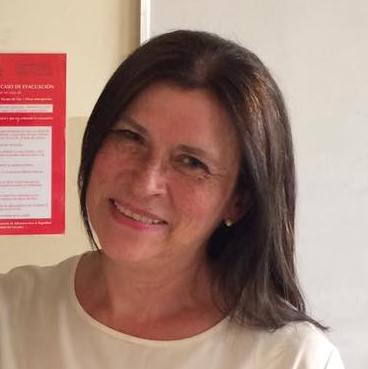
Norma Andrada
Sworn Translator graduated from Universidad del Salvador, Argentina. Conference Interpreter graduated from the London School of Languages, United Kingdom.
Member of Colegio de Traductores Públicos de la Ciudad de Buenos Aires, of the American Translators Association (ATA) and the Argentine-British Chamber of Commerce. Vice President of the Argentine Association of Translators and Interpreters (AATI) for the period 1990 - 1995.
Professor in the career of Sworn Translator and Conference Interpreter at Universidad del Salvador since 1982. Formerly Professor in the Conference Interpreter career at Instituto Superior del Profesorado en Lenguas Vivas, Juan Ramón Fernández. Professor in charge of the Interpreting Diploma Course, Universidad San Pablo de Tucuman and Colegio de Traductores de Tucumán, Argentina. Professor in charge of the undergraduate curricula in Interpreting, Universidad Católica de las Misiones, Argentina. She has been a full-time translator and interpreter for the International Civil Aviation Organization (ICAO) within the United Nations Development Program (UNDP) in Argentina. And has worked for different government agencies and private companies in Argentina and the United Kingdom. In addition to her teaching career, she is Editorial Director of Interlingua, a private company involved in the provision of project management and planning services in translation, interpretation, and graphic design for national and international companies.
|
|
Comprehension: An Essential Element in Interpreting Training
Oral comprehension that is achieved during interpretation implies a cognitive exchange between the information received and the use the interpreter makes of it. This means that the knowledge of the language and the extra-linguistic knowledge (i.e. the knowledge of the world) will help to comprehend the communication process that will enable the interpreter to know what piece of the information received is relevant to transmit the speaker’s message and what is not. To comprehend a message the mind needs to resort to and perform several functions in the short-term-memory. First, it selects the useful part of the message, splitting it between primary and secondary information. Then, it decodes the data received and grasps the meaning of the message. Only then, full comprehension is achieved, since the mere recognition of words (i.e. understanding) is not enough to fully comprehend a piece of speech (find its meaning). Thus, the cognitive process of interpretation implies a level of comprehension of the source language within a context that goes beyond the simple recognition of words and linguistic structures. In other words, short-term-memory and comprehension are key elements that cannot be separated.
|
 |
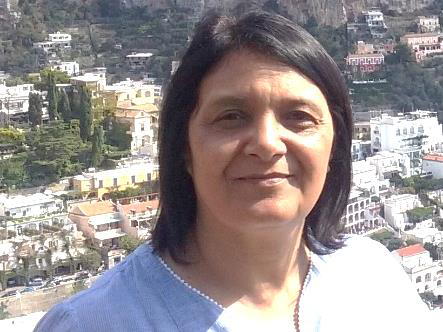
Lidia Casalini
Lidia Casalini graduated as a Profesora en Inglés from Universidad del Museo Social Argentino. She holds a Master of Arts in Teaching English as a Foreign Language (TESOL) from the Universidad Europea del Atlántico, Spain. Lidia is a Specialist in Education and ICT from the Ministry of Education, Argentina.
She specializes in online teaching and has delivered local, national, and international workshops for teachers via videoconferencing. Lidia has presented in local, national and international teachers’ events. Lidia has worked as a remote teacher of English for the British Council, Argentina. She has been part of Plan Ceibal with the British Council Argentina and a remote teacher of English within the Programme LEP for Chilean teachers.
Lidia is currently a teacher trainer at the teacher training college ISFDyT 24 Bernardo Houssay in Bernal, and she teaches at secondary schools. She is an Edmodo Ambassador and a Certified Teacher Trainer and has been awarded the International Ambassador of the year.
|
|
Beyond the limits
Access to technology and the Internet has dramatically expanded the opportunities and resources for teachers to provide learners with meaningful experiences to enhance learning beyond the classroom. One of the most rewarding activities for both teachers and students is participating in online language exchange projects. Real life communication with native speakers of the target language makes the interaction a priceless asset to the learning process. Being in contact with people of the same age and interests, students become more motivated, develop autonomy, improve multicultural skills, and make use of the digital tools that are part of their everyday life. Additionally, one of the most remarkable aspects of this kind of exchanges is that it promotes a sense of belonging at a local, national and global level. Evidence shows that when learners have the opportunity of seeing non-Spanish speakers using their language this create awareness about the importance of being “ambassadors” of their own culture. In this presentation, we will share some insights we have gained from arranging language exchanges with primary and secondary students from Argentina and countries such as the USA, Canada, and Italy.
Keywords: multiculturalism- technology- opportunities- meaningful- exchanges- autonomy-motivation- skills- rewarding
|
 |

Carla Alberio
Profesora en Ingles from ISFD y T No24. Attending Licenciatura en Enseñanza de Inglés in Universidad CAECE. Currently teaching English at primary and secondary schools, and at the teacher training college ISFDyT N° 210 in La Plata. Carla has delivered workshops for teachers and she has presented at local, national and international conferences.
Since 2014 Carla and Lidia have been working on arranging languages exchanges. They have set up exchanges for more than 1,500 students from Argentina and other countries such as the USA, Canada, France, and Italy. Both Carla and Lidia strongly believe in going beyond the limits of the classroom as a powerful tool to empower their learners.
|
|
Beyond the limits
Access to technology and the Internet has dramatically expanded the opportunities and resources for teachers to provide learners with meaningful experiences to enhance learning beyond the classroom. One of the most rewarding activities for both teachers and students is participating in online language exchange projects. Real life communication with native speakers of the target language makes the interaction a priceless asset to the learning process. Being in contact with people of the same age and interests, students become more motivated, develop autonomy, improve multicultural skills, and make use of the digital tools that are part of their everyday life. Additionally, one of the most remarkable aspects of this kind of exchanges is that it promotes a sense of belonging at a local, national and global level. Evidence shows that when learners have the opportunity of seeing non-Spanish speakers using their language this create awareness about the importance of being “ambassadors” of their own culture. In this presentation, we will share some insights we have gained from arranging language exchanges with primary and secondary students from Argentina and countries such as the USA, Canada, and Italy.
Keywords: multiculturalism- technology- opportunities- meaningful- exchanges- autonomy-motivation- skills- rewarding
|
 |
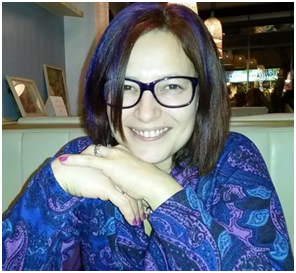
Laura Colombo
Laura Colombo holds a PhD in Language, Literacy and Culture and a MA in Intercultural Communication from the University of Maryland Baltimore County, United States. She is an Assistant Researcher for the Argentine National Scientific and Technical Research Council (CONICET). Her research interests are academic writing in first and second language, especially at the university level. She is a member of GICEOLEM, an interdisciplinary research team that analyzes the relationship between teaching, learning, reading and writing in different disciplines and educational levels. She has authored several research papers and book chapters and presented her research at different academic events. Dr. Colombo has worked as an educator for 20 years in different high schools, teacher education institutes and universities. She has also offered workshops on writing to teachers and university professors.
|
|
Teaching writing for publishing practices to language teacher trainees: A classroom experience
Reading and writing practices play an essential role in teacher training programs. On the one hand, they can constitute an essential learning tool to acquire disciplinary knowledge (Carlino, Iglesia, & Laxalt, 2013). On the other hand, language teachers need to become effective readers and writers in their professional communities in order to contribute to the advancement of their own careers as well as to the development of the profession (Edwards-Groves, 2013). One common way of doing this is through publishing. Nevertheless, the literacy practices that surround the making of a publishable paper are infrequently taught to future language teachers. As a matter of fact, while pursuing their degree students rarely count on an opportunity to communicate with a real audience since most of their written work is only read by their professors. In this paper, we share a classroom experience with future English teachers in which students are expected to acquire some of the writing-for-publishing literacy practices, including those implied in the peer-review process commonly found in academic publication venues.
|
 |

Jorge Christian Curto
Jorge Christian Curto is a law graduate from Universidad de Buenos Aires. He also holds a degree in translation (English< >Spanish) from the same university. Currently he is a lecturer in English in the Law degree course at the School of Law at Universidad de Buenos Aires and a junior lecturer in English at the School of Legal Sciences at Universidad del Salvador. He is also a teaching assistant in General Theory of Law at the School of Law at Universidad de Buenos Aires. Furthermore, he has written different articles on Legal English and legal and political matters.
|
|
The Use of the Modal Verb Shall in Legal Texts
Modal verbs constitute a relevant topic in English language teaching. Depending on the context, they may indicate a degree of probability, a degree of formality, ability, an obligation, a need, or a recommendation. Shall is one of the modal verbs. This article analyzes the different uses of shall, mainly in the legal texts.
Keywords: legal texts, English language, shall, modal verbs.
|
 |

Andrea Lombardo
I am an English Language Teacher and Sworn Translator from the Faculty of
Humanities and Educational Sciences at the National University of La Plata (UNLP).
I obtained a Magister degree in Translation from the University of Belgrano in the city of Buenos Aires.
I am a member of the research group Escrituras de minorías, ethos y (auto) traducción, in charge of Dr. María Laura Spoturno. My research interests are African Literature, Translation Studies and Linguistics. I have participated in congresses and published a number of articles on these areas of study. At present, I am carrying out research mainly on the work of Chimamanda Ngozi Adichie.
I teach at the School of Engineering at UNLP as Adjunct Professor, at Escuela de Lenguas as Qualified Assistance Professor with part-time dedication, at a bilingual school and secondary schools in the province of Buenos Aires.
|
|
The literary translator’s discourse and voice
This paper aims at exploring the nature of the Translator’s discursive presence (Hermans, 1996; Schiavi, 1996; O’ Sullivan, 2003) in the novel Half of a Yellow Sun (2006) by the Nigerian writer Chimamanda N. Adichie (1977—). In this respect, we will focus our analysis on the examination of the translation processes intervening in the rendering of the “original” postcolonial hybrid text into the translated Spanish version carried out by Laura Rins Calahorra (2014). Accordingly, we will approach the analysis of the translator’s discourse and voice as a discursive enunciative subject in connection with the (re-)configuration of the Author discursive image or ethos of the original. To this end, on a theoretical level and within the field of discourse studies, we will examine Amossy’s rhetorical model (1999, 2009, 2012) which draws on the idea of stereotypes or pre-existing schemes agreed upon by members of a particular community as having a crucial role in the argumentative construction of the ethos. Finally, on the analytical level, we seek to analyze instances of self-translation in the “original” text (Ashcroft et al., [1989] 2002; Tymoczko, 1999; Spoturno, 2012) which exhibit forms of interlingual heterogeneity (mainly in proverbs, language change and switch of code) as well as evaluate how these forms are rendered into Spanish by the translator in discourse. Thus, the ultimate aim is to assess if the Translator’s choices or shifts tend to the homogenization (naturalization) or heterogeneity (exotization) of the “original” text (van Leuven-Zwart, 1989; 1990) both at micro and macrostructural level.
Key words: translator’s voice, ethos, interlingual heterogeneity
|
 |

Raúl Eduardo Narváez
He holds the degree of: Doctor en Lenguas Modernas con Especialidad en Lengua Inglesa – USAL; Traductor Público en Idioma Inglés - UBA; Profesor en Inglés. Instituto Superior "Jesús María" (A-85); Consultor Psicológico - Inst. Sup. de Ciencias Humanas y Sociales (A 1375); Diplomatura en Psicoanálisis –Inst. Sup. de Ciencias Humanas y Sociales (A 1375)
He worked as: Director de Estudios -Inst. Superior del Profesorado San Agustín (A 757). CABA; Prof. Titular -UBA since 1986 to 2016. He published his book The Act of Translating in 2005 -UBA. He was granted scholarships: by Colegio de Traductores Públicos de la Ciudad de Buenos Aires; by University of Granada, Spain.
He was granted by: Colegio de Traductores Públicos de la Ciudad de Buenos Aires; 2014: Medal as a recognition of career as an author; 2014: Diploma to a vast and prestigious career as both translator and author; Instituto Superior del Profesorado San Agustín (A 757); 2015: Award to Career in Argentine Education System. He has participated as a lecturer at national and international level and has published numerous papers about translation.
|
|
FIDELITY IN TRANSLATION
Fidelity has always been the primary objective of every translator. Hence, a brief overview of what has been understood by "fidelity" through time will be offered. A concise analysis of short texts taken from literature and the Bible will illustrate the theoretical speculations developed.
|
 |

Valeria Rodriguez Van Dam
Valeria Rodriguez Van Dam obtained her TEFL degree at I. S. P. "Dr. Joaquín V. González", where she also completed a postgraduate degree in Shakespeare Studies. She holds a Licenciatura degree in Education and Foreign Languages from Universidad Nacional de Quilmes and currently holds several chairs of Shakespeare Studies and Medieval English Literature at I. S. P. "Joaquín V. González" and I. S. P. Consudec "Septimio Walsh". She is also a joint lecturer at the Faculty of Social Sciences of the University of Buenos Aires and a Cambridge ESOL Speaking Examiner, Team Leader and Pedagogical Consultant for the Buenos Aires Open Centre. She directs The Shakespeare Study Group and teaches tailored Shakespeare and medieval poetry courses in private organizations. She is a researcher of Anglo-Saxon texts in translation and a founding member of the team of lecturers for the "Seminario Permanente de Lectura de Clásicos".
|
|
Resisting Patriarchy and Petrarchy: Shakespeare, Ovid and a Rhetoric of the Assaulted Female Body
This brief exploration of eight crucial stanzas in Shakespeare’s narrative poem The Rape of Lucrece will address the poetic, political and gender/genre issues raised by the poet as part of his aesthetic manifesto. Shakespeare problematises received assumptions regarding the female body as the site of conflict -territorial, historical, political, poetic- as he continues to interpellate every new generation of readers with his uncomfortable questions, his intelligence and the beauty of his artistry.
|
 |
 Gabriela Escarrá Gabriela Escarrá
Gabriela Escarrá is a certified translator, editor, transcreator and copywriter specializing in Marketing and Corporate Communications. She holds two university degrees as a Sworn Translator and a Teacher of English Language and Literature. As a professional translator, she has worked on several projects for the United Nations Development Programme (UNPD), and with direct clients, including private corporations, government agencies, and professional associations. She has also been a University Professor of Technical Translations at the School of Economics, UCLP.
|
|
Together with Dolores Guiñazú, they have both been lecturing on Quality Management in the USA and Europe, including the University of Massachusetts (UMass) in Boston, the 58th ATA Annual Conference in Washington, DC., the Florida International University (FIU) in Miami, and the BP18 Conference in Vienna, among others.
|
|
Total Quality in Translations
Resumen: This session aims at providing a comprehensive understanding of the checks that must be performed to maximize the quality of our translations. Attendees will get detailed information about the international quality standards for translation services (UNE-EN 15038 / ISO 17: 100 / ISO 1858) and the steps necessary to implement a thorough check. Finally, the speakers will share their own model of quality assurance in the different stages of translations.
|
 |
 Silvia Parise Silvia Parise
Silvia Parise is a Teacher of English as well as a Lawyer graduated from University of Buenos Aires. She holds an MA in English Language Teaching and Applied Linguistics from King’s College, University of London. Currently, she works at various institutions such asUniversity of Buenos Aires where she is a Lecturer of English II and III at Social Sciences College, AIE ( AsociacionInternacional de Estudios) as Academic Secretary and LLM Tutor and AACI where she is Speaking Examiner of Cambridge Assessment. She has a vast experience in English as a Foreign Language,not only in the private sector but also in further education and at university. Being a lawyer, she has had the chance of specializing in Law and Business in English as well. She has contributed and developed University of London’s Programmes in its registered centre in Buenos Aires, Argentina.Also, she has taken part in Study AbroadProgrammes with foreign universities in Buenos Aires.
|
|
How to improve and enhance Reading skills.
Reading skills pose a challenge for autonomous learning. It has become a demand of the academic and business world since students need to develop strategies to combine their background knowledge with the unknown field of a foreign language. It is the teacher’s aim to think of ideas and provide useful tools.
It is considered fundamental to raise awareness of this basic requirement of today’s global context.
As a starting point, there will be a brief description of the typical student who has this basic need, by describing the setting and target.
It is claimed to be essential to resort to students’ knowledge of both English (in case they have had some basic training on the foreign language) and the tools they make use of when reading in their native language, that is to say, how to make the most of background knowledge and experience.
Teachers can contribute to narrowing the gap and building a bridge between students’ background knowledge and their desired target: to become independent learners who can deal with English sources for academic purposes or business.
Strategies and activities which can be used in class will be displayed so that students can improve their searching skills (either by using dictionaries, search engines, out of a good use of the context itself) as well as learn how to identify structures and features of English (such as grammar patterns, word order, word categories) to achieve comprehension of reading sources.
|
 |

Patricia Silvana Policastro
Patricia Silvana Policastro has devoted thirty-seven years to working as a teacher at the different educational levels. She holds the degrees of Primary School Teacher from Escuela Normal Nacional “Eduardo Costa”, and English Bachelor from Universidad del Salvador. She has got post-degrees on Secondary and University Teacher of English and on Institutional Management. Currently, she is a PhD candidate for the Educational Science Doctorate at Usal. She is also member of a research group at FCECS which focuses on the implications of social programmes.
Prof. Policastro is the Coordinator of “Ciclo Pedagógico Universitario” at Usal, Campus Nuestra Señora del Pilar. Besides, she works as a Grammar teacher for the School of Modern Languages and is author of “The Easiest Way to Approach Grammar I” (Ediciones Universidad del Salvador). Since 2010 she has been delivering many workshops and seminars on pedagogical matters and has recently written a paper titled “The Art of Planning”.
|
|
A View of Grammar from its Teaching Perspective
Grammar has always been a challenge for primary, secondary and university teachers and students, especially as regards the grammatical structures and rules of a foreign language, such as English in this case. If we travelled back in time, we would find out that in the 19th and first half of the 20th centuries English Grammar was taught by following the 18th century principles in the teaching of Latin: translations, memorization of rules, deductive methodology, tedious lessons, and whatever type of odyssey we could imagine our students had to go through in order to be able to “speak and write properly”. With the coming of the communicative methodologies, the second half of the 20th century could witness a different approach in the teaching of this subject: more interesting lessons, the prevailing of the inductive methodology, and lots of contextualized experiences including the participative and interactive estrategies which have contributed to the development of comprehension and critical thinking. However, even today, Grammar still poses a great challenge: do our students really enjoy studying it? Furthermore, do they learn and apply their knowledge of grammar when communicating with the surrounding world? The aim of this speech is to explore and comprehend the deeper structures and mechanisms of the English language under the guidance of experienced linguists and grammarians, and try to find the most accurate way to engage our 21st century students in their daily effort to socialize with Grammar.
KEY WORDS: grammatical structures, teaching, deductive, inductive, communicative methodologies, critical thinking, learn
|
 |

Ana Irazábal
Teacher of English, graduated from ISP 'Dr. Joaquín V. Gonzalez'. Bachelor in English Language, graduated from Universidad de Belgrano. She specialized in Phonetics and Phonology at ISP 'Dr. Joaquín V. Gonzalez'.
She teaches English at the secondary school level and coordinates courses for children, adolescents and adults at a private institution. At tertiary level she teaches Phonetics and Phonology I and English Language Laboratory I and II at ProfesoradoConsudec, and Phonetics and Phonology I at IES enLenguasVivas‘Juan Ramón Fernández’. She is also a teacher assistant for English Language Laboratory lessons at ISP 'Dr. Joaquín V. Gonzalez'.
|
|
Polysyllabic Words: Un-academic Activities for an Academic Matter.
The importance of correct word stress cannot be over-emphasised if the target is a native-like accent. Not only is word stress of great significance for general intelligibility but also as the basis for rhythm and nuclear accent. However, due to the complexity of the topic, there is disagreement as to the best way to approach this area of study. Although word stress in English is quite variable, it is not entirely random. Some learners may, through exposure, make some generalizations but it is usually the case that students get discouraged by the long lists of words, rules and exceptions they need to memorize. That is why it is important to introduce engaging activities which may not only help do away with negative perceptions on the subject but also enhance the student’s interest and help them retain important information. The learning process may be facilitated if tasks are organized in a way that leads them to systematize patterns. For this reason, the aim of this paper is to provide a range of sample activities which can be used to present, practise or revise polysyllabic words in an un-academic way.
KEY WORDS: polysyllabic words – word stress principles – engaging sample activities
|
 |

Dolores R. Guiñazú
Dolores R. Guiñazú is a Certified Sworn (Court-Approved) English to Spanish Translator, Interpreter and Copyeditor specializing in healthcare, marketing, legal & corporate communications. At the beginning, an in-house translator for multinational corporations, and then a freelance translator, working in teams for Global Agencies as well as for direct clients all over the world. She holds an MBA in Marketing from Universidad del Salvador (USAL) & Albany University in New York. Besides, she is a Spanish Copyeditor and Proofreader certified by Fundación Litterae and Fundéu.
|
|
Together with Gabriela Escarrá, they have both been lecturing on Quality Management in the USA and Europe, including the University of Massachusetts (UMass) in Boston, the 58th ATA Annual Conference in Washington, DC., the Florida International University (FIU) in Miami, and the BP18 Conference in Vienna, among others.
|
|
Total Quality in Translations
Resumen: This session aims at providing a comprehensive understanding of the checks that must be performed to maximize the quality of our translations. Attendees will get detailed information about the international quality standards for translation services (UNE-EN 15038 / ISO 17: 100 / ISO 1858) and the steps necessary to implement a thorough check. Finally, the speakers will share their own model of quality assurance in the different stages of translations.
|
 |
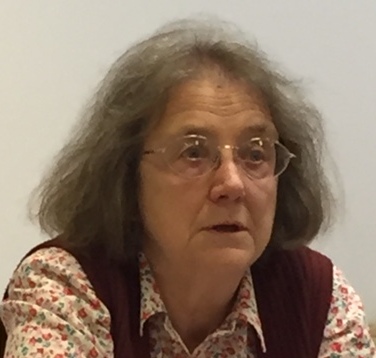
Susana Biasi
Professor Emeritus of History of Great Britain and English and North American Culture, and Researcher of the Research Institute in Modern Languages.
Susana Biasi has a degree in History from the University of Buenos Aires and has graduated as a translator at the Universidad del Salvador. She is a Specialist in Integration Policies and a Master in Latin American Integration, graduated from the National University of La Plata.
She is currently Professor Emeritus at USAL, where she teaches History of British and American Culture, History of Great Britain, History of Contemporary Latin America and History of the United States at the University of Salvador, both in the School of Modern Languages.
She has researched extensively on the historical framework of Shakespeare's works at the School of Modern Languages. She has also studied the Latin American Conflicts in the interwar period at the University of Tres de Febrero.
|
|
Ecocritical Shakespeare in Buenos Aires: The Non Human as a Character in The Hollow Crown (BBC, 2015).
The School of Modern Languages' Research Team on Shakespeare discuss ways of making the first tetralogy available to non-British audiences by tackling it from an ecocritical perspective.
There will be Historical Outline; Performance: Dramatic exercises: warm-up; choice of lines; speaking them up; comparing & evaluating utterances; contributing to the exercises from outsiders (the other participants): casting (against the words: beauty, youth, charm of French Lady Margaret, Somerset/Suffolk, King Henry).
|
 |

Malvina Aparicio
Malvina Aparicio is a Doctor in Modern Languages from the Universidad del Salvador (USAL) and Professor in English Language and Literature from the National University of La Plata. She took postgraduate studies at the University of Oxford, Birmingham, London and the University of Paris III, Sorbonne Nouvelle. Currently, she is a Full Professor of English Literature in the BA in English Language, USAL; and as a Full Professor of Postcolonial Literatures in the BA in English Language, at Universidad Católica Argentina. She has published articles on Literature and Didactics of Literature in specialized magazines. She is a member of the Narratology Center of the Faculty of Philosophy and Letters of the University of Buenos Aires.
|
|
Ecocritical Shakespeare in Buenos Aires: The Non Human as a Character in The Hollow Crown (BBC, 2015).
The School of Modern Languages' Research Team on Shakespeare discuss ways of making the first tetralogy available to non-British audiences by tackling it from an ecocritical perspective.
There will be Historical Outline; Performance: Dramatic exercises: warm-up; choice of lines; speaking them up; comparing & evaluating utterances; contributing to the exercises from outsiders (the other participants): casting (against the words: beauty, youth, charm of French Lady Margaret, Somerset/Suffolk, King Henry).
|
 |

WALTER KERR
Lawyer. Certified translator (Spanish, English, German, French). Simultaneous and consecutive interpreter. Member of the Geneva-based International Association of Conference Interpreters (AIIC). Member of the Argentine Association of Conference Interpreters (ADICA). He has worked as an interpreter and translator in the private sector and for a number of international organizations, among others including the following: Organization of American States (OEA), United Nations Vienna and Nairobi Offices, United Nations Development Programme (UNDP), Food and Agriculture Organization (FAO), UNESCO, ECLAC, IMF-World Bank, Inter-American Development Bank (IDB), World Health Organization (WHO), Pan-American Health Organization (PAHO), International Civil Aviation Organization (ICAO), Inter-Parliamentary Union, CITES, ISO, IISD, FIFA, World Tourism Organization. Director for Translation Services at the Ministry of Foreign Affairs of Argentina and official interpreter. Full Professor of Translation into English and Interpretation 2 courses within the Certified Translation Degree Program offered by the School of Law of the University of Buenos Aires, where he also teaches postgraduate-level interpretation courses. He has also studied a number of other languages.
|
|
At Home and Beyond: Interpreter Practice in International Organisations
The work of interpreters at and for international organisations has features in common with that of interpreters in other contexts but also exhibits a number of specific characteristics. The presentation will address such matters as language combinations, interpretation styles and modes, the need (or not) for relay and retour, the use of official and other languages during meetings, interpreter team composition and working conditions (including hours of work and remuneration), availability, usefulness and risks of written speeches delivered in advance, interpreter teamwork, workload sharing and the role of chief interpreters and conference specialists. Reference will also be made to some of the challenges inherent in conveying the nuances of political discourse and domestic/cultural specificities.
|
 |
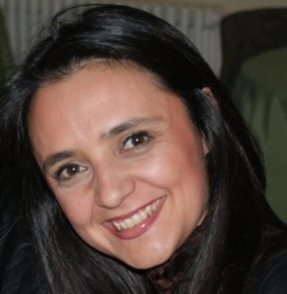
Gabriela Aguilar
Gabriela Aguilar is an English Teacher and Public Translator graduated from UNC (National University of Córdoba). She has mostly worked as a teacher for over 20 years now. In 1999 she won the Rotary Club GSE (Group Study Exchange) Scholarship to the USA where she did research on the teaching of English as a foreign language and Spanish as a foreign language. She is currently a Language and Phonetics and Phonology professor at USAL university. She is a member of Ofelia Veltri’s research team in Lenguas Modernas and has investigated on “how ICTs (Information Communication Technologies) affect cognitive development and the learning paradigms”, on “how knowledge is collaboratively constructed in CoIs (Communities of Inquiry)” and on “The importance of the EoR (Ecology of Resources Method) in the development of knowledge”. She is also an e-learning platform content designer at CIIBA (Argentinian Air Force English Language Centre) and she is doing a postgraduate degree in “e-learning teaching and design and development of online course material”.
|
|
Will technology ever replace teachers?
What have been some of the technological tools that have been used along history and which have either aided or challenge teaching? The hornbook is one of them and it was one of the first tools ever used in education (1450). In 1870, technology advanced to include the Magic Lantern. A brief reference to the blackboard (1890), the pencil (1900), the radio (1920), and the overhead projector (1930) will be made as some of them are still present in some classrooms today. In the 1960’s B. F. Skinner in his pursuit of the science of learning and behavior challenged the American system with his teaching machine. The ideas of teaching machines and programmed learning provided the basis for later ideas such as open learning and computer-assisted instruction. Fast forwarding at great speed we come to the XXI century Japanese creation “Saya”. She is the one that might be the answer to the original question and title of this paper. So, is there hope for us teachers? Is there any future for those of us who believe that teaching is not what we do but who we are?
Two practical examples that were carried out this year in English Language will be presented as baby steps towards meeting the challenge of an ever-evolving high tech society that needs us educators to develop multiple forms of computer and information literacy that will in turn help our students learn more effectively. We can then conclude that technology will not replace great teachers because technology in the hands of great teachers makes them undefeatable.
|
 |

Dolores Aicega
Dolores Aicega is a Teacher of English and English Literature (University of La Plata) and she has completed a Masters Degree in Cognitive Psychology and Learning (FLACSO – thesis under evaluation). Dolores is a teacher of English Language 4 at the School of Humanities and Educational Sciences (FaHCE-UNLP), where she has also coordinated the Introductory Course to the Teacher Training and Tranlation courses of study and the Programme for the Equalization of Learning Opportunities (PEOE). She is also a consultant for the General Directorate of Culture and Education of the Buenos Aires Province. Dolores has taught English as a foreign language at all levels of our educational system in both state-run and private institutions. Her current academic interests involve the nature of reading processes in literary translation and the challenges they impose to student translators.
|
|
Reading processes in literary translation. How specific are they? What challenges do they impose to the student translator?
This paper aims to explore the processes involved in reading literary texts as part of the translation process. In general terms, our research seeks to contribute to the description and explanation of the reading processes which occur in literary translation. We begin by showing that van Dijk’s model of text comprehension (van Dijk, 1978; 1980; 2014; van Dijk and Kintsch, 1983) is not enough to account for the singular nature of these processes. Then, we analyse some contributions from the field of Translation Studies, particularly James Holmes’s ([1978]1988) concept of map of the source text and Hurtado Albir and PACTE’s notion of translation competence. Finally, we present a proposal for an integrated model of the processes involved in reading as part of the process of literary translation which articulates van Dijk and Kintsch’s model with Holmes’s concept of map of the source text using the notion of translation competence as a bridge-concept between the models.
|
 |

Luis Bignelli
Though it is no easy to write about one´s own bio data, I will try to let readers know the greatest events in my professional life. I attended State Schools for my Elementary and Secondary School studies. The education in them was simply excellent and gave me knowledge and moral lessons, side by side with my parents’ advice.
Once I started the higher level, I chose the Catholic University (UCA) to follow the steps of a wonderful career that made me a “Teacher of English.”
Nevertheless, it was not enough for my restless soul. I wanted to become a doctor in the interesting language I know, so I went to El Salvador University (USal) to follow the steps of the fascinating “Doctorado en Lenguas Modernas”(English Language) where I got my degree in 2010.
Now, I am working as a bilingual history teacher, in upper level Institutes, thanks to the excellent learning quality, I attained al both private Universities of Buenos Aires. Ireland and the Irish civilization became my favourite focus, since I discovered the wonderful history of effort and success that characterized the Irish families both in Ireland and in our own country.
|
|
The Argentine Development from 1850 to 1950, its extension to 1960 and the British and Irish Immigrations to Argentina
The present work deals with the events leading into the development of Argentina from 1850, up to 1960, though the aim of the work is actually to point out the importance of the Irish immigration in the Argentine process of change and improvement. Its paragraphs also state a definite comparison between both immigrations: the Irish and the British ones, during the same period. The parameter to understand and determine the quality of that process will be the situation of the Argentine Railways in those years as a means of communication and colonization along and across the whole country.
The amazing Irish activity in its various aspects became the key to the Argentine process of change and continued after 1950, although towards the decade of the 1960s Argentina was living hard times both in the social and financial affairs. The Irish Society in Argentina had changed its characteristics and lost part of its ancestral relevance. The members of the main British Companies had left Argentina, as most of the Private “service” Companies had been acquired by the Argentine Government and became State “business” Companies, with a completely different purpose.
The decade of the 1950s saw Argentina sunk in a long process of political struggle with “Military Coups”, a “de facto” Government and controversial elections that made the period a non attractive one for the Foreign Investors in our country. Railways underwent similar circumstances to those of the Argentine Republic. Though having new pieces of the rolling stock and new equipment for its lines, the newly nationalized Company of State Railways was decaying, it was no longer efficient and little was left of its old times of glory.
|
 |

Valeria Carbone
Valeria Carbone is a translator, copy editor and teacher at college level. She holds a degree in Literary, Technical and Scientific Translation from Instituto de Enseñanza Superior en Lenguas Vivas “Juan Ramón Fernández”. She has also completed a specialization (adscripción) in Technical and Scientific Translation in the same institute. She is Correctora Internacional de Textos en Lengua Española from Fundación Litterae and holds a Master’s Degree in Applied Linguistics from University of Aston. She works as independent translator for the World Bank Institute and is a Lecturer in English Language in the Teaching, Translation and Interpretation Departments at Instituto de Enseñanza Superior en Lenguas Vivas “Juan Ramón Fernández”. Her research interests are in the areas of language, meaning and lexical studies.
|
|
Lexical Relations and Meaning As Context
This paper hopes to contribute to the understanding of meaning as inherently vague and indeterminate except when seen as the active process in which discourse sets up lexical sense relations. Vagueness and indeterminacy in reference was studied by Eleanor Rosch (1973, 1978). She found that conceptual categories do not have sharp boundaries. This same indeterminacy in categories has been ascribed to words by Hanks (2008). He contends that word meaning is made up of components which are activated by the context, where the context may help disambiguate the semantic composition of a word in use. Even though some components are activated by contextual triggers, discriminating which components are active is rarely straightforward. This is precisely the kind of task lexical relations effect in context. Lexical relations have been studied from various perspectives: from Lyons to Cruse (Geeraerts, 2010: 82) and from generative linguistics (Radford et al., 2009: 170) to functional linguistics (Halliday, 2014: 644). All discuss the four classic types: superordination-hyponymy, holonymy-meronymy, synonymy and antonymy. Traditionally, these relationships have been analysed in isolation, ie not as part of discourse. One exception is Jeffries’s Opposition in Discourse (2010). Jeffries argues pairs of words may enter into oppositional relationship by virtue of their textual surroundings. The contention here is that all sense relations are constructed in texts, not just antonymy. This view helps appreciate more accurately both the flexibility and the fuzziness of meaning, but it also contributes to understanding the processes of meaning disambiguation as instantiated by lexical relations in discourse.
Key Words: meaning, lexical relations, indeterminacy.
|
 |

Andrés Cardozo
Andrés Cardozo graduated as a teacher of English in 2010, at Facultad de Lenguas, Universidad Nacional de Córdoba. He has been a lecturer in English Language and Phonetics and Phonology at tertiary and university level. He has also worked as a Spanish Language Assistant in several schools in Stockton-on-Tees, United Kingdom, as part of a bilateral British-Argentinian exchange programme. He has been part of a research team on the impact of virtual classrooms in the pronunciation class at University level. Currently, he is completing a Master’s Programme in English Language with a mention in Applied Linguistics at Universidad Nacional de Córdoba.
|
|
Condolences on online social networks: a pragmatic study based on the Speech Act Theory
When language users communicate, whatever the message may be, they make use of a given speech act (Austin, 1962). That is to say, they do not communicate by the mere production of isolated sentences but by means of three basic speech acts: Locutive, illocutive, and perlocutive, both in direct and indirect ways (Austin, ibid.). Based on these studies, Searle (1979) expanded on illocutive acts and divided it into five basic categories. This project focuses on expressive ilocutive acts, specifically on condolences, which may in turn be classified into eight categories according to the intentionality or function (Kuang, 2015). Secondly, given the advances in technology, communication has acquired new features, and many of these are practically exclusive to online social media language (Berlanga & Martínez, 2010). This article aims at describing the way in which native speakers of English tend to express condolences when they are informed about the real news of a close person’s passing, in an online social network (Facebook). The analysis was carried out taking into account the semantic functions of the illocutive speech act of condolence, following Kuang (2015) and the specific features described by Berlanga & Martinez (2010).
|
|
Analysis of the phraseology of online newspaper articles: A brief corpus-based study on online newspaper articles about Robin Williams’ passing
Authors such as Halliday (1985) and Sinclair (1991) have demonstrated that the organization of language has a lexis-grammar basis, which entails that vocabulary items are not isolated, but should rather be approached within a context. The importance of this approach lies in that it can display a general panorama of a particular semantic prosody, defined as “a form of meaning which is established through the proximity of a consistent series of collocates” (Louw, 2000, p.9). As pointed by Gledhill (2000), it is important to look at collocational patterns within a specific genre and a specific context in order to understand how phraseological conventions work. We believe that by looking at collocational patterns in newspaper articles related to a particular event, we can get an insight into this speech community’s perception of such event. This brief study aims at analyzing the semantic prosody of online newspaper articles, more specifically the way in which collocations play a fundamental role in how judgment is passed when reporting and linguistically reconstructing events of global importance. By using concordancer software and looking at the collocations of certain high frequency words in our corpus, we will analyse the reports on the suicide of the well-known American actor Robin Williams.
|
 |

JUAN JOSÉ DELANEY
Dr JUAN JOSÉ DELANEY was born in Buenos Aires in 1954. He is Professor of Arts from the University of Salvador where he currently serves as head of the Argentina 20th Century Literature Seminar and Irish Studies Program Coordinator. Narrator and essayist, he has published Papeles del Desierto, a volume that gathers stories written between 1974 and 2004, Tréboles del Sur (1994), a collection of stories related to Irish immigrants in Argentina, which won the Third Municipal Prize for Literature of the City Buenos Aires, the novel Moira Sullivan (1999) and the nouvelle Theophilus Flynn’s memory (2012). In 2006, Ediciones Corregidor unveiled his essay “Marco Denevi and the sacred writing ceremony”. A literary biography project that had received grants from the National Endowment for the Arts and work for which he won the First Municipal Prize "Eduardo Mallea" from the Government of the Autonomous City of Buenos Aires. He is the author of La viuda de O’Malley (O'Malley's widow), dramatic comedy about Irish immigrants in Argentina.
|
|
Book presentation: “What, che?”
Integration, adaptation and assimilation of the Irish-Argentine community through its language and literature
|
 |

Juan A. Ferretti
Dr. Juan A. Ferretti holds a master’s degree in TESOL and Applied Linguistics (University of Leicester, UK) and a doctor’s degree in Modern Languages (Universidad del Salvador, Argentina). At Universidad Tecnológica Nacional, he is head of the Licenciatura en Lengua Inglesa programme and lectures in Contemporary Literature in English and Twentieth-Century Culture (Teacher Education College). He also lectures in English Language, Contemporary Literature and Academic Writing at Instituto Nacional Superior del Profesorado "Dr. Joaquín V. González”, and English Language and History at CONSUDEC Teacher Education College. His main interests lie in the domains of Literature and Discourse Analysis.
|
|
MORE THAN MEETS THE NAKED EYE IN THE WORLD OF LITERATURE
In fond memory of Dr. Fernando Armesto
In the world of literature, diversity in the interpretations of texts has always been welcome, especially if a given critical eye is hailed as expert. However, some visions of certain literary works have gained more popularity than others throughout recent decades, and have become almost “official”. The advent of Poststructuralism has brought into question most of the apparently firm and “unassailable” interpretations: In fact, new theoretical stances have indeed contested the incontestable. This brief presentation is aimed to cast some doubt on certain traditional readings of such works as Golding’s Lord of the Flies and Shakespeare’s Hamlet, the latter vision based on an analysis conducted by Dr. Fernando Armesto, whose recent passing has shocked and saddened the ELT community.
|
 |

Marina Grasso
Marina Grasso graduated as a teacher of English from the Universidad Nacional de La Plata and then got an MA degree in ELT and Applied Linguistics at Kings College, University of London, England. She worked as a teacher of English at different schools of English for over twenty years and has been an assistant in the Language Laboratory and assistant teacher of English Phonetics and Phonology I and II, subjects of the Profesorado and the Traductorado de Inglés at the Facultad de Humanidades y Ciencias de la Educación (UNLP) for over twelve years now. Since 2003, she has been a member of the group ECAR (Español Coloquial de Argentina) and has participated in four research projects of the Programa de Incentivos para la Docencia y la Investigación.
|
|
World Englishes and the challenge of teaching phonetics and phonology at higher education level
The growth of the use of English worldwide and its recognition as a lingua franca have questioned the appropriateness of certain instructional pronunciation models. As a consequence, the goals of teaching pronunciation have also been discussed. The increasing acceptance of many varieties of English and the diversity of contexts in which they are used as a successful communication tool seem to have shifted the focus from achieving native like pronunciation to giving priority to intelligibility. Teaching phonetics and phonology in higher education settings as part of teacher education and translation programmes enlarges the possibilities of developing the students’ ability to adapt themselves to the changing reality of the global use of English. After considering the present contents and goals and pursued at the teaching of the phonetics of English to future specialists, this paper aims at sharing possible activities in an attempt to raise the students’ awareness of the existence of diverse pronunciations heard in different parts of the world, eradicate the notion of the supremacy of an accent over others, analyze differences among Englishes spoken by people in the outer, inner and expanding circles and help learners develop the skills of perceiving peculiarities and understanding the language despite these differences.
Key words: Englishes- pronunciation instruction- higher education level
|
 |

Marina Kirac
I am a Magíster en la Enseñanza del Inglés como Lengua Extranjera from Universidad de Jaén, España.At present, I am writing my dissertation for the postgraduate degree of Magíster en la Enseñanza de la Lengua y la Literatura from Universidad Nacional de Rosario and have finished my Especialización en Metodología de la Investigación Científica at Universidad Nacional de Lanús. I am also a Profesora en Inglés e Inglés Técnico graduated at Instituto Nacional Superior del Profesorado Técnico with a a post-graduate course of specialization in English Grammar at Instituto Superior del Profesorado "Dr.Joaquín V. González" and a Licenciada en Gestión Educativa from Universidad Nacional de Lanús. I have taught English from Primary School through University and have been a Head of School for more than 10 years. I am a University Lecturer in the Area of English Grammar at Universidad Tecnológica Nacional and Universidad Nacional de Lanús. I was also a Lecturer in Grammar, Linguistics and Teaching Practicum at various Colleges of Education in the Province of Buenos Aires. I was also a Lecturer in Research Methods at Licenciatura en Lengua Inglesa, Universidad Tecnológica Nacional and I am Researcher at Universidad Nacional de Lanús. I have been a co-author of textbooks for the teaching of English, among them, series Polimodal English, as well as Grammar Explorer and the best seller series Top Teens and English Class all of them published by Macmillan.
|
|
“COMMON ERRORS IN WRITING: THE CASE OF LANGUAGE I STUDENTS IN THE COURSE OF SWORN TRANSLATION STUDIES (ENGLISH)”
This research project was launched due to the strong evidence of recurrent mistakes made in writing by first year students attending the Course of Sworn Translation Studies (English) at Universidad Nacional de Lanús. Teachers who teach Language I courses, when designing in-class and home practice materials and activities, tend to follow most of the parameters set by the syllabus in the textbook selected as appropriate for the language level of the course. Evidence has proved that, in many cases, the results teachers can get in their students written production overrun the expected ones.
The aim of this research was to find out what kinds of mistakes students made –whether syntactic, lexical, semantic or other- and decide whether our findings matched the taxonomies available in the field of error analysis or whether it became necessary to start constructing a new taxonomy. We conducted this investigation in the Course of Sworn Translation Studies (English) in two different universities in Argentina: a state-run one (Universidad Nacional de Lanús) and a private one (Universidad del Salvador). Questionnaires were administered to Language I teachers and to teachers who taught first year subjects in English other than Language I. Language I students´ writings in three different instances of the course were randomly selected and analyzed in order to find recurrent mistakes. All data found compared with existing literature on error typologies led us to conclude that it was possible to elaborate a simpler taxonomy that adjusted to the needs of Language I teachers.
|
|
“Teachers´ perceptions on frequent and serious mistakes in students´ writings. The case of the Course of Sworn Translation studies (English)”
The aim of this research was to identify teachers´ perceptions on type and frequency of mistakes when assessing students´ writings. There seems to be a mismatch between teachers preconceptions in terms of students´ difficulties in certain linguistic domains and the type of mistakes that prevail in their writings. It is presumed that much of the work conducted to recover those failings is not always oriented to correcting or erradicating those most significant mistakes. This research was conducted in four universities: two state-run ones and two private ones. Two different types of self-administered questionnaires were designed. One was addressed to Language teachers. They were expected to rank mistakes made by students in writing in terms of frequency of occurrence, to state what type/s of mistakes they believe to affect the quality of the written work, and to state which mistakes, and to what extent, they considered serious. Six other questions asked them to identify (in type and frequency of occurrence) the correction strategies they used both for highly frequent mistakes and for serious mistakes, to state the number of mistakes they counted for failing writings, as well as to what extent the assessing criteria was shared with students. The other questionnaire was administered to teachers who taught subjects in English -other than Language-. They were expected to answer the same first three questions as Language teachers. Data is still being analysed. We can attempt to say that many of the correction strategies may not lead to correcting or erradicating students´ mistakes.
|
 |

Magali Libardi
Magali Libardi is an English-Spanish scientific-literary translator and certified translator graduated from the Universidad del Salvador. Her areas of expertise are literary and journalistic translation.
She’s a lecturing professor of the subjects: Literary Translation I and II, Methods of Translation and British and North American Literature at the Universidad del Salvador, as well as the project coordinator for the “Voces irlandesas” workshop, which takes place within the institution’s Chair of Irish Studies and aims to bring visibility to early twentieth century women’s writing in Ireland.
She was granted a scholarship by the Japanese Student Services Organization and Kansai Gaidai University to participate in their Asian Studies Program in Osaka, Japan. She’s a member of the Colegio de Traductores Públicos de la Ciudad de Buenos Aires (CTPCBA), an active participant in their Research, Teaching and Academic Relations Commission, and is currently completing her postgraduate studies at the Universidad de Buenos Aires.
|
|
¿Quién tradujo Lolita? Censura, retraducción e invisibilidad en las versiones en español de la obra de Nabokov.
In 1959 the Argentine publishing house Sur published the first Spanish translation of the novel Lolita, a controversial best-seller by Russian-American author Vladimir Nabokov. The edition was the work of the translator, critic, professor, and, later on, editorial assistant for Sur Magazine, Enrique Pezzoni.
Said translation –which appeared under the pseudonym Enrique Tejedor at Pezzoni’s request-, was later acquired by the publishing house Grijalbo and, in 1986, by yet another publisher, Anagrama. In 2002, Anagrama commissioned a new translation, done by Francesc Roca. The retranslation was at least partially motivated by the evident censorship and consequent distortion of the original text in the translation allegedly done by Enrique Tejedor, which still managed to circulate in the Spanish-speaking market for over forty years.
This paper explores two hypotheses. Firstly, that Enrique Pezzoni is not responsible for the censorship exercised on the text and that, therefore, there have not been two but three versions of Lolita in Spanish since 1959 and, secondly, that Roca’s retranslation is, at the very least, derivative of Pezzoni’s. Through comparative analysis we will try to demonstrate that the history of this novel in its Spanish rendition involves numerous actors, whose interaction with the text has resulted in Pezzoni’s forced estrangement from his own work.
Keywords: Vladimir Nabokov, translation, comparative literature, translation studies
|
 |

Daniela L. Martino
Daniela L. Martino is a teacher of English and Sworn Translator (Universidad de La Plata, Buenos Aires, Argentina) She holds a Diploma in Education and ICT and is currently doing an MA in Technology-mediated Learning (Universidad de Córdoba, Argentina). She has been working as an EFL teacher at different levels for twenty years. She has also been an EFL pre service teacher trainer, lecturing in Applied Phonetics since 2009. Her research interests include the integration of ICT in teaching programmes, particularly in the teaching of segmental and suprasegmental features of spoken English.
|
|
World Englishes and the challenge of teaching phonetics and phonology at higher education level
The growth of the use of English worldwide and its recognition as a lingua franca have questioned the appropriateness of certain instructional pronunciation models. As a consequence, the goals of teaching pronunciation have also been discussed. The increasing acceptance of many varieties of English and the diversity of contexts in which they are used as a successful communication tool seem to have shifted the focus from achieving native like pronunciation to giving priority to intelligibility. Teaching phonetics and phonology in higher education settings as part of teacher education and translation programmes enlarges the possibilities of developing the students’ ability to adapt themselves to the changing reality of the global use of English. After considering the present contents and goals and pursued at the teaching of the phonetics of English to future specialists, this paper aims at sharing possible activities in an attempt to raise the students’ awareness of the existence of diverse pronunciations heard in different parts of the world, eradicate the notion of the supremacy of an accent over others, analyze differences among Englishes spoken by people in the outer, inner and expanding circles and help learners develop the skills of perceiving peculiarities and understanding the language despite these differences.
Key words: Englishes- pronunciation instruction- higher education level.
|
 |

Rafael Raspanti
Rafael Raspanti is a graduate English language teacher and he also holds a bachelor’s degree in English language and linguistics from FASTA University. He is currently completing his master’s degree in Applied Linguistics at Universidad Nacional de Córdoba, Argentina. He currently works as a lecturer and teacher trainer at an English language teaching training institution in Villa del Totoral, in the north of Córdoba, and he is also a trainee lecturer in the Pronunciation Practice chair at Facultad de lenguas, Universidad Nacional de Córdoba. His areas of interest and research include English phonetics and phonology, English Language Teaching, and critical education.
|
|
Condolences on online social networks: a pragmatic study based on the Speech Act Theory
When language users communicate, whatever the message may be, they make use of a given speech act (Austin, 1962). That is to say, they do not communicate by the mere production of isolated sentences but by means of three basic speech acts: Locutive, illocutive, and perlocutive, both in direct and indirect ways (Austin, ibid.). Based on these studies, Searle (1979) expanded on illocutive acts and divided it into five basic categories. This project focuses on expressive ilocutive acts, specifically on condolences, which may in turn be classified into eight categories according to the intentionality or function (Kuang, 2015). Secondly, given the advances in technology, communication has acquired new features, and many of these are practically exclusive to online social media language (Berlanga & Martínez, 2010). This article aims at describing the way in which native speakers of English tend to express condolences when they are informed about the real news of a close person’s passing, in an online social network (Facebook). The analysis was carried out taking into account the semantic functions of the illocutive speech act of condolence, following Kuang (2015) and the specific features described by Berlanga & Martinez (2010).
|
 |

Andrea Rodríguez
Andrea Rodríguez is a Bachelor in English Language from the School of Modern Languages of Universidad del Salvador. She works at Universidad del Salvador as a professor in the American Literature and History, English and America Literature and English Language subjects. She is a member of Dr. Ofelia Veltri’s research team at the School of Modern Languages. Currently she is doing a Masters degree in History at IDAES Institute from Universidad Nacional de San Martín.
|
|
“Vietnam, Vietnam, Vietnam, we’ve all been there.” – The War Novel and the Experience
of Vietnam.
The Vietnam War left deep marks in the American society. Taking place in a land many had never even heard of, the war left the reasons for the country’s involvement rather unclear. The purpose of America in Vietnam escaped most people at both ends alike: home and the battlefront.
The biased media coverage and the geographical distance with the battlefield were obstacles to access reliable information about the actual development of the conflict. Literature became then the means to bring light to an intentionally obscured reality. Although literary production on Vietnam took many shapes, this work focuses in the novels written by those who experienced firsthand the exhausting fighting. We will explore the works of the journalist Michael Herr, and the veterans Tim O’Brien and Phillip Caputo who succeed in recreating the suffocating war atmosphere and made the reader feel it. Part fiction and part reality, war novels dealing with Vietnam revealed what history was not ready to assume yet. The hardships of war however did not end with the ceasefire; those who were lucky enough to survive combat had to endure an unlucky existence back in their home country. The writers also addressed the physical and psychological consequences for the soldiers as well as society’s rejection of the Vietnam veterans.
All in all we expect to show how war novels delivered the most realistic and honest picture of the Vietnam War and its aftermath. Shielded behind fiction authors were able to tell their truth.
|
 |

Delma Lilian Sánchez
Lic. Delma Lilian Sánchez is a qualified teacher of English (graduated from INSP “Joaquín .V. González) and “Licenciada en Inglés” con orientación en Linguistica (UNL). She also holds a post-graduate course of Specialization in “Metodología de la investigación científica” (UNLa).She is currently writing her dissertation for her “Maestría en Metodología de la Investigación científica”. She is also a Speaking Examiner for Cambridge University and Coordinator of DLS (English training for companies). She has been the Head of the English department at Colegio Tiempos Modernos for many years and is a University Lecturer in Estructuras Comparadas, an assistant lecturer in the area of English grammar and a researcher at UNLa.
|
|
“COMMON ERRORS IN WRITING: THE CASE OF LANGUAGE I STUDENTS IN THE COURSE OF SWORN TRANSLATION STUDIES (ENGLISH)”
This research project was launched due to the strong evidence of recurrent mistakes made in writing by first year students attending the Course of Sworn Translation Studies (English) at Universidad Nacional de Lanús. Teachers who teach Language I courses, when designing in-class and home practice materials and activities, tend to follow most of the parameters set by the syllabus in the textbook selected as appropriate for the language level of the course. Evidence has proved that, in many cases, the results teachers can get in their students written production overrun the expected ones.
The aim of this research was to find out what kinds of mistakes students made –whether syntactic, lexical, semantic or other- and decide whether our findings matched the taxonomies available in the field of error analysis or whether it became necessary to start constructing a new taxonomy.
We conducted this investigation in the Course of Sworn Translation Studies (English) in two different universities in Argentina: a state-run one (Universidad Nacional de Lanús) and a private one (Universidad del Salvador).
Questionnaires were administered to Language I teachers and to teachers who taught first year subjects in English other than Language I. Language I students´ writings in three different instances of the course were randomly selected and analyzed in order to find recurrent mistakes.
All data found compared with existing literature on error typologies led us to conclude that it was possible to elaborate a simpler taxonomy that adjusted to the needs of Language I teachers.
|
|
“Teachers´ perceptions on frequent and serious mistakes in students´ writings. The case of the Course of Sworn Translation studies (English)”
The aim of this research was to identify teachers´ perceptions on type and frequency of mistakes when assessing students´ writings. There seems to be a mismatch between teachers preconceptions in terms of students´ difficulties in certain linguistic domains and the type of mistakes that prevail in their writings. It is presumed that much of the work conducted to recover those failings is not always oriented to correcting or erradicating those most significant mistakes.
This research was conducted in four universities: two state-run ones and two private ones. Two different types of self-administered questionnaires were designed. One was addressed to Language teachers. They were expected to rank mistakes made by students in writing in terms of frequency of occurrence, to state what type/s of mistakes they believe to affect the quality of the written work, and to state which mistakes, and to what extent, they considered serious. Six other questions asked them to identify (in type and frequency of occurrence) the correction strategies they used both for highly frequent mistakes and for serious mistakes, to state the number of mistakes they counted for failing writings, as well as to what extent the assessing criteria was shared with students. The other questionnaire was administered to teachers who taught subjects in English -other than Language-. They were expected to answer the same first three questions as Language teachers.
Data is still being analysed. We can attempt to say that many of the correction strategies may not lead to correcting or erradicating students´ mistakes.
|
 |

Franco Zanfagnini
Franco Zanfagnini graduated in 2011. He holds a degree in English Language Teaching from Facultad de Lenguas (UNC). He is a Professor in the Phonetics and Phonology II chair. He has also taught in the Language I, Language II and Language III chairs. He has been part of a research project with the Phonetics and Phonology II chair called “La Evaluación de la oralidad en la universidad ¿Evaluación impresionista u holística de pronunciación en inglés como lengua extranjera?”, and he is finishing his Masters Dissertation on Applied Linguistics at Facultad de Lenguas (UNC). Moreover, since 2013, Franco has taught at Ciclo de Nivelación at Facultad de Lenguas teaching both Pronunciation and English Language.
|
|
Condolences on online social networks: a pragmatic study based on the Speech Act Theory
When language users communicate, whatever the message may be, they make use of a given speech act (Austin, 1962). That is to say, they do not communicate by the mere production of isolated sentences but by means of three basic speech acts: Locutive, illocutive, and perlocutive, both in direct and indirect ways (Austin, ibid.). Based on these studies, Searle (1979) expanded on illocutive acts and divided it into five basic categories. This project focuses on expressive ilocutive acts, specifically on condolences, which may in turn be classified into eight categories according to the intentionality or function (Kuang, 2015). Secondly, given the advances in technology, communication has acquired new features, and many of these are practically exclusive to online social media language (Berlanga & Martínez, 2010). This article aims at describing the way in which native speakers of English tend to express condolences when they are informed about the real news of a close person’s passing, in an online social network (Facebook). The analysis was carried out taking into account the semantic functions of the illocutive speech act of condolence, following Kuang (2015) and the specific features described by Berlanga & Martinez (2010).
|
|
Analysis of the phraseology of online newspaper articles: A brief corpus-based study on online newspaper articles about Robin Williams’ passing
Authors such as Halliday (1985) and Sinclair (1991) have demonstrated that the organization of language has a lexis-grammar basis, which entails that vocabulary items are not isolated, but should rather be approached within a context. The importance of this approach lies in that it can display a general panorama of a particular semantic prosody, defined as “a form of meaning which is established through the proximity of a consistent series of collocates” (Louw, 2000, p.9). As pointed by Gledhill (2000), it is important to look at collocational patterns within a specific genre and a specific context in order to understand how phraseological conventions work. We believe that by looking at collocational patterns in newspaper articles related to a particular event, we can get an insight into this speech community’s perception of such event. This brief study aims at analyzing the semantic prosody of online newspaper articles, more specifically the way in which collocations play a fundamental role in how judgment is passed when reporting and linguistically reconstructing events of global importance. By using concordancer software and looking at the collocations of certain high frequency words in our corpus, we will analyse the reports on the suicide of the well-known American actor Robin Williams.
|
 |
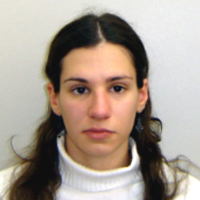
Silvina Barna
Professor of History of Great Britain and Researcher of the Research Institute in Modern Languages.
Professor in English Language (2008), Universidad del Salvador. Degree in English Language (2007), Universidad del Salvador. Literary Scientific Translator in English (2007), Universidad del Salvador.
Courses attended: Jan / May 2007 A semester of study in Loyola College, Maryland, USA by scholarship granted by the Universidad del Salvador. The subjects studied and passed were: American History since Civil War, Biographical Tales of the Bible, The Classical Epics, Literature in the Catholic Imagination: Tolkien and Lewis. Oct / Nov 2011: Seminar on Literary Theory and Cultural Theory, Borges International Foundation, Buenos Aires.
Participation in the III and IV Research Seminars of the Faculty of Philosophy and Letters, Universidad del Salvador (panel member).
Publications: The Tempest in the construction of the River Plate identity. In preparation for publication in Gramma Magazine of the School of Letters of the Universidad del Salvador.
Researcher at Research Project 'The Non-Human as a Character in Shakespeare's plays. An ecocritical approach to the study of the second tetralogy '. Institute of Research in Modern Languages, Universidad del Salvador.
|
|
Ecocritical Shakespeare in Buenos Aires: The Non Human as a Character in The Hollow Crown (BBC, 2015).
The School of Modern Languages' Research Team on Shakespeare discuss ways of making the first tetralogy available to non-British audiences by tackling it from an ecocritical perspective.
There will be Historical Outline; Performance: Dramatic exercises: warm-up; choice of lines; speaking them up; comparing & evaluating utterances; contributing to the exercises from outsiders (the other participants): casting (against the words: beauty, youth, charm of French Lady Margaret, Somerset/Suffolk, King Henry).
|
 |

Laura Calderón
Degree in English from the Universidad del Salvador with Honours.
She currently specializes in Theatre Arts - Performance at the School of Arts of Theatre and Communication.
She teaches English in 3rd and 7th grade at Escuela Modelo Argentina. She completed an exchange experience at the University of Glasgow, where she completed advanced courses on Scottish Literature and Post dramatic Theatre.
|
|
Ecocritical Shakespeare in Buenos Aires: The Non Human as a Character in The Hollow Crown (BBC, 2015).
The School of Modern Languages' Research Team on Shakespeare discuss ways of making the first tetralogy available to non-British audiences by tackling it from an ecocritical perspective.
There will be Historical Outline; Performance: Dramatic exercises: warm-up; choice of lines; speaking them up; comparing & evaluating utterances; contributing to the exercises from outsiders (the other participants): casting (against the words: beauty, youth, charm of French Lady Margaret, Somerset/Suffolk, King Henry).
|
 |

Roxana Basso
She obtained her Masters’ at King’s College, University of London. In 1977-1978 The British Council sent her to England to work as a Spanish Assistant at John Kelly´s Girls High School. Back in Argentina, Roxana became a lecturer in English Phonology, Intonation and Diction in Provincia de Buenos Aires and Ciudad Autónoma de Buenos Aires, at IES en LenguasVivas ´Juan Ramón Fernández´, InstitutoNacional Superior del ProfesoradoTécnico, InstitutodelProfesorado ´Joaquín V. González´, among other institutions. She taught Reading Comprehension in English at Universidad Nacional de Buenos Aires and English at ColegioNacional de Buenos Aires. She also gave lectures on the teaching of English pronunciation and intonation, Phonetics and perception, a multisensory approach for learning English Pronunciation, the English Vowels, the Phonology of international English, in Buenos Aires, San Martín, La Plata, Córdoba, Mendoza, Santiago de Chile and Asunción del Paraguay. She is currently a Lecturer of the Pedagogy of English Intonation and coordinator of the Diploma of the Pedagogy of English Phonology at Universidad Nacional de San Martín. Since 1981, she has been a member of the International Phonetic Association (IPA). She was a co-coordinator of the Phonology SIG at Asociación de Profesores de Inglés de Buenos Aires from 2000 to 2002. She has broadcast on the teaching and learning of pronunciation on Metro and Magazine Channels in Argentina.
|
|
Intonation: Negative Domains in English and Spanish
One of the problems in oral discourse concerns the negative domain of dependency in English and Spanish. The literature on the intonation of English has presented it through the tinted colours of various approaches. For example, in English it has been explained from a syntactic point of view (Lee 1960), a logical perspective (Wells 2006) and a systemic view (Tench 1996, 2011). However, in Spanish, the question seems yet not to have been analysed as part of the phonological system (Hidalgo Navarro 2006, Quilis 1999, 2010). The aim of this paper is to carry out a comparison of the intonation systems in English and Spanish, with reference to the negative domain and dependency in clauses. This study proposes that the main feature determining the occurrence of a negative clause followed by a subordinate one is mainly an instance of marked tonality. Addressing tonicity, the second intonation system, proves to be curious, for in Spanish the nucleus may frequently be the lexical verb accompanying the negative, while in English the tonic must be placed in the dependent clause, preferably, on the last lexical item. To conclude and contrary to most linguists’ opinions, we think that the fall-rise, apparently presented as the typical intonation contour in English, is not a relevant pattern here.
|
 |
|
Graciela Jakulj

Graciela Jakulj is a qualified English Teacher. She holds a Diploma in "Pedagogy of English Phonetics from Universidad Nacional de San Martín. She is a lecturer of Intonation II at UNSAM, IES en Lengua Vivas "Juan Ramón Fernández", Instituto Nacional Superior del Profesorado Técnico -Universidad Tecnologíca Nacional and at ISFD No. 100 -Unidad Académica- Former teacher at "Colegio Nacional de Buenos Aires" -Universidad Nacional de Buenos Aires.
She has lectured in different conferences at Universidad Nacional de Córdoba, Universidad Nacional de San Martín, Universidad Nacional de La Plata.
Co-author of "Listening and Speaking in the Additional Language" -INFOD- Ministerio de Educación de la Nación.
As a researcher, she has engaged in different frameworks of English Intonation.
|
|
Intonation: Negative Domains in English and Spanish
One of the problems in oral discourse concerns the negative domain of dependency in English and Spanish. The literature on the intonation of English has presented it through the tinted colours of various approaches. For example, in English it has been explained from a syntactic point of view (Lee 1960), a logical perspective (Wells 2006) and a systemic view (Tench 1996, 2011). However, in Spanish, the question seems yet not to have been analysed as part of the phonological system (Hidalgo Navarro 2006, Quilis 1999, 2010). The aim of this paper is to carry out a comparison of the intonation systems in English and Spanish, with reference to the negative domain and dependency in clauses. This study proposes that the main feature determining the occurrence of a negative clause followed by a subordinate one is mainly an instance of marked tonality. Addressing tonicity, the second intonation system, proves to be curious, for in Spanish the nucleus may frequently be the lexical verb accompanying the negative, while in English the tonic must be placed in the dependent clause, preferably, on the last lexical item. To conclude and contrary to most linguists’ opinions, we think that the fall-rise, apparently presented as the typical intonation contour in English, is not a relevant pattern here.
|
 |

José Manuel Durán
José DURÁN holds a university degree of civil engineer (UBA), a later degree in English Language Teaching (ISP Joaquín V.González) and an MA in English Language (Universidad de Belgrano). He is currently professor of Discourse Analysis at Master in English Language at Universidad de Belgrano and Intonation Pedagogy at University Diploma of Phonetics Pedagogy with an Orientation in English Language at Universidad Nacional de San Martín and at Postítulo Técnico en Interpretación de Conferencias, IESLV “Juan Ramón Fernández”. He is also teaching English Grammar I and II at Universidad de Belgrano, IESLV “Juan Ramón Fernández” and ENSLV “SB Spangenberg”. He is the author of An Introductory Course in English Grammar (2014), Towards a Phonological Characterisation of Unaccusative Verbs (2013) and editor and coauthor of Exorcising Grammar (2016) and has published three refereed chapters and several refereed research articles. He has presented a number of papers at 50 international conferences on Linguistics both in Argentinean universities and abroad (Australia, Brazil, Canada, Chile, China, Denmark, Germany, Indonesia, México, Portugal, Sweden, United States, Uruguay). He is currently collaborating in an international project on a Trilingual Glossary on Applied Linguistics (Universidade Federal de Santa Maria, RS) and is directing an interdisciplinary project on the syntax-phonology interface (IES LV JRF).
|
|
Teaching Essay-Writing through an ‘Appliable’ Linguistics Model
In the last decades, one of the main concerns of applied linguistics has been the analysis of students’ written productions (Christie 1999). This has led linguists to try different methodologies in order to teach students to improve the quality of their written productions (Schleppegrell 2000, Jenkins and Pico 2006, Whittaker & Lövstedt 2017). This paper focuses on the implementation of a recent methodology applied to teaching essay-writing at secondary, tertiary and university levels, with the aim of widening the scope of the students’ registerial cartography (Matthiessen 2013). The paper explores the implementation of the Learning-to-Write-Reading-to-Learn cycle model (Rose & Martin 2012) with all-level students. The model has proved to be one of the dimensions in which Systemic Functional Linguistics may be deemed an ‘appliable’ theory (Halliday 2010:128). This paper reports the implementation of this model, which has resulted in students’ progress, from the deconstruction of sample texts of argumentative registers to independent writing in terms of the stages to successful writing. It will be shown that the teaching of writing-techniques from this genre perspective contributes to students’ awareness of paragraph organisation, better grammatical and lexical cohesion, general coherence and more thoughtful choices in terms of the intended audience and purpose of the task.
|
 |

Francisco Zavala
Francisco Zabala is a teacher from “Joaquín V. González” Teacher Training College, where he specialised in Segmental and Suprasegmental English Phonetics. He holds a Licenciatura degree in English from Universidad Tecnológica Nacional. He has been a lecturer in English Phonology and Phonetics and Lab Practice since 2008 (I.S.P. “Dr. Joaquín V. González”, I.E.S. en Lenguas Vivas “Juan Ramón Fernández”, I.N.S.P.T. Universidad Tecnológica Nacional, Universidad de Buenos Aires). He has published and presented several papers on English and Spanish phonology (UNSAM, UNC, UNMDP, UNLP). He has been in charge of the Fulbright and British Council ELT Assistants at terciary level in Buenos Aires.
|
|
Revisiting the Role of Phonology in Teacher Training and Translation Programmes
Q & A with Dr Tench
|
 |

Paula Ortiz
Paula Ortiz is a Sworn Translator, Scientific-literary Translator and Bachelor in English, graduated from Universidad del Salvador (USAL); Master in Business Administration (MBA) graduated from the International Program Universidad del Salvador – Universidad de Deusto (Spain); and PhD in Education Science, graduated from USAL. She is Head of the School of Modern Languages at USAL. She has been
professor at the School of Modern Languages since 1992, specialising in Phonology and Diction. She is currently a Tenured Professor of English Phonetics and Phonology.
She specialised in university management. She served as Academic Staff, as Secretary of Development and as Vice-president for Research and Development at USAL for 22 years until February 2015. She is Director of the Technological Development Program TECSAL-USAL, and Project Manager in TECSAL Foundation (USAL’s Technological Extension Branch), managing extension and training activities at USAL. She is a Member of the Board of Directors of both Universidad del Salvador Civil Association and TECSAL Foundation. She is Vice-president of the Association of Irish Studies of the South (AEIS).
|
| “Teaching Modern Languages facing the academic challenges of a changing future” |
 |

Roberto L. Elissalde
Argentine historian. Vice-president of the Argentine Academy of Arts and Communication Sciences, member of the Bonaerense Institute of Numismatics and Antiquities and of the Institute of Historical Research of the Manzana de las Luces and the Board of Argentine Ecclesiastical History. Corresopndent Scholar to the Historical and Geographical Institute of Uruguay, the Paraguayan Academy of History, the Institute of Historical and Military Studies of Peru and the Academy of Maritime and Fluvial History of Uruguay. He is a member of the Association of Irish Studies of the South. Author of several books, he worked on the English invasions of the Río de la Plata and more than 300 articles for La Nación, The Southern Cross and Todo es historia.
|
| Memorias de los viajeros británicos en el Río de la Plata durante las invasions inglesas |
 |
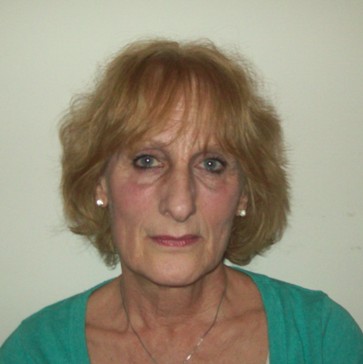 Rosa María Donati (Tiggie) Rosa María Donati (Tiggie)
Rosa María Donati (Tiggie) is a Sworn Translator and Interpreter of English graduated from Universidad del Salvador (USAL); Tenured Professor of English Language in all the courses of study at the School of Modern Languages (USAL); and English Language Tutor at the Faculty of Social Sciences (USAL). She also taught English Language and Culture at St. Trinnean’s University College (San Isidro). She also lectured on English Language, Literature, and Diction at USAL’s articulation course for English teachers (Licenciatura en Lengua Inglesa-Plan B), and was Language coordinator at the former Faculty of Philosophy and Arts (USAL), between 1992 and 1998. She was Head of the English Department of bilingual Primary and Secondary private schools till 2007. She lectured at the First International Conference on English Language, organized by the School of Modern Languages (USAL), 2009, and has been summoned by Universidad de Lanús (UNLA) to be part of several Assessment Boards. She has published translations of articles for the Faculty of Social Sciences at Universidad del Salvador (USAL) and for the Faculty of Social Sciences, Universidad Nacional de Lomas de Zamora. In 2017, she created the Drama Club at the School of Modern Languages, USAL, where students and teachers can participate in theatre production in English, as an extracurricular activity. She has also been a member of the jury for the Literary Contest in English Language at the School of Modern Languages since its first edition in 2001.
|
| Theatre Production: Blithe Spirit |
 |
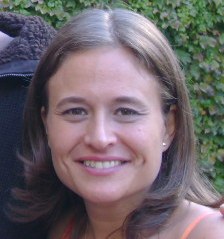 Silvia Paredes Silvia Paredes
Silvia Paredes Valencia holds a degree in History from Universidad del Salvador. She is also a History Teacher graduated from USAL. She is currently the Academic Secretary at the School of Modern Languages (USAL), where she also lectures on History of Culture and Scientific Research Methodology in all the courses of study at the School of Modern Languages (USAL). She is a PhD candidate for the Educational Science Doctorate at USAL.
|
| Executive Committee for the 5 th International Conference on English Language |
 |
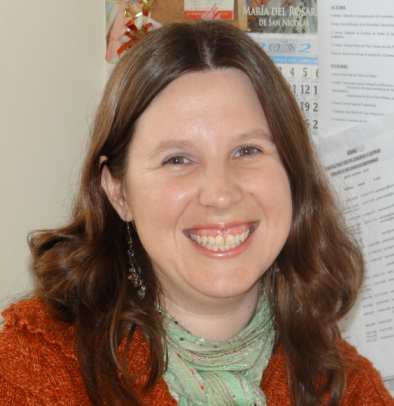 María Verónica Repetti María Verónica Repetti
Verónica Repetti is a Sworn Translator from Universidad del Salvador, and holds a degree in Accounting from Universidad de Buenos Aires. She is currently the Academic Prosecretary at the School of Modern Languages, USAL, where she also lectures in the chair of English Language. She is a Tenured Professor of Accounting, Economics and Finance at the Legal Translation course of Universidad de Buenos Aires. Since 2014, she has been a researcher in the team led by Dr Ofelia Veltri at the Research Institute in Modern Languages (USAL). She is also a member of the editorial board of the academic journal IDEAS, and a member of the Executive Academic Committee of the Extracurricular Chair of Irish Studies (USAL).
|
| Executive Committee for the 5 th International Conference on English Language |
 |
 Marco Luccón Marco Luccón
Marco Luccón holds a Licenciatura degree in English Language from Universidad del Salvador (USAL). He is also an English Teacher graduated from USAL. He currently lectures in English Phonetics and Phonology at USAL, I.S.P. “San Agustín” and CONSUDEC Teacher Training College. He is also an Assistant Professor in the English chair at the Faculty of Social Sciences at Universidad de Buenos Aires. He has been a researcher in the fields of Literature and Linguistics since 2010. He is currently a member of IDEAS Editorial Board, and a member of the Academic Staff at the School of Modern Languages, Universidad del Salvador.
|
| Executive Committee for the 5 th International Conference on English Language |























